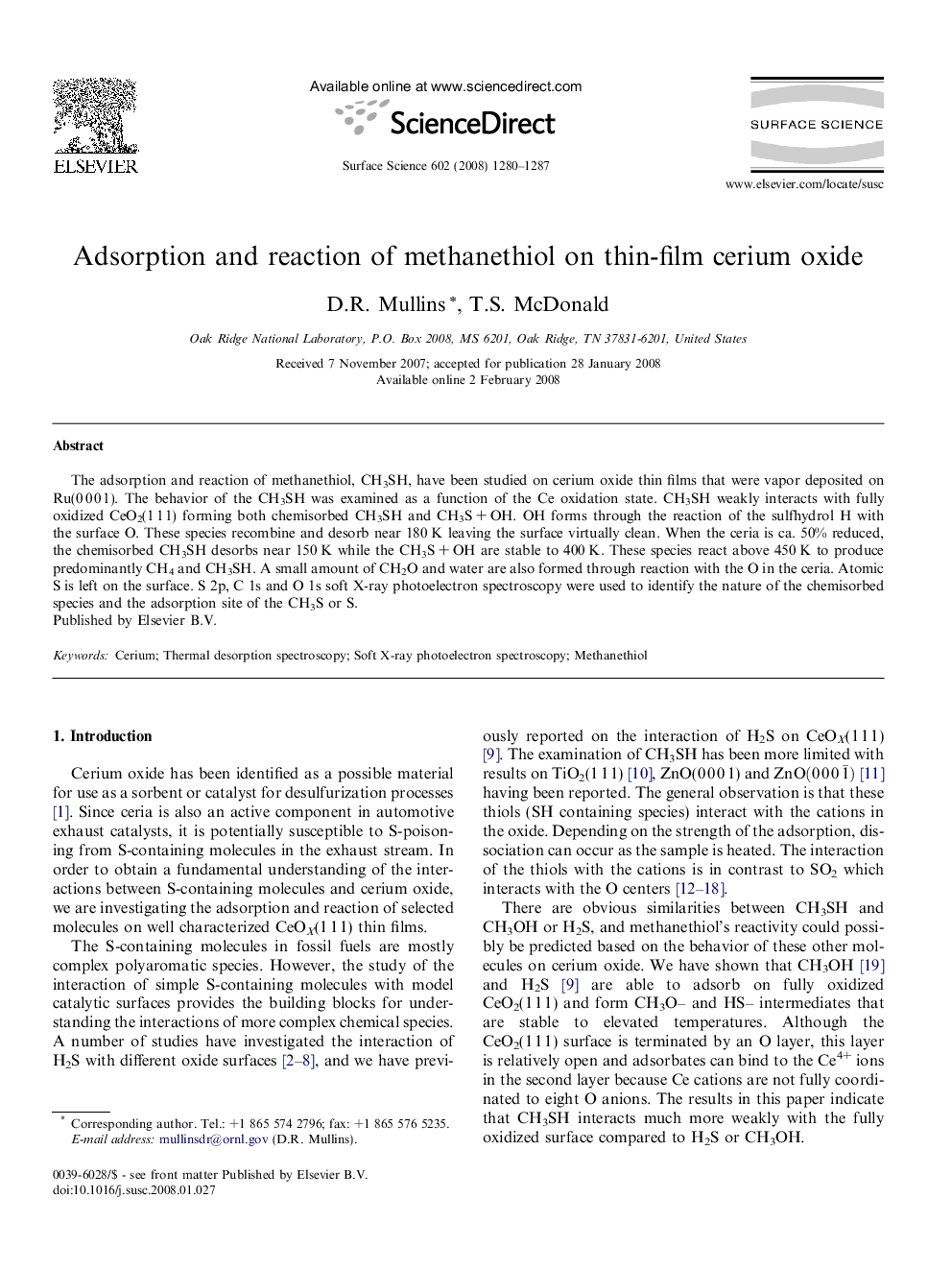| Article ID | Journal | Published Year | Pages | File Type |
|---|---|---|---|---|
| 5424978 | Surface Science | 2008 | 8 Pages |
Abstract
The adsorption and reaction of methanethiol, CH3SH, have been studied on cerium oxide thin films that were vapor deposited on Ru(0Â 0Â 0Â 1). The behavior of the CH3SH was examined as a function of the Ce oxidation state. CH3SH weakly interacts with fully oxidized CeO2(1Â 1Â 1) forming both chemisorbed CH3SH and CH3SÂ +Â OH. OH forms through the reaction of the sulfhydrol H with the surface O. These species recombine and desorb near 180Â K leaving the surface virtually clean. When the ceria is ca. 50% reduced, the chemisorbed CH3SH desorbs near 150Â K while the CH3SÂ +Â OH are stable to 400Â K. These species react above 450Â K to produce predominantly CH4 and CH3SH. A small amount of CH2O and water are also formed through reaction with the O in the ceria. Atomic S is left on the surface. S 2p, C 1s and O 1s soft X-ray photoelectron spectroscopy were used to identify the nature of the chemisorbed species and the adsorption site of the CH3S or S.
Related Topics
Physical Sciences and Engineering
Chemistry
Physical and Theoretical Chemistry
Authors
D.R. Mullins, T.S. McDonald,
